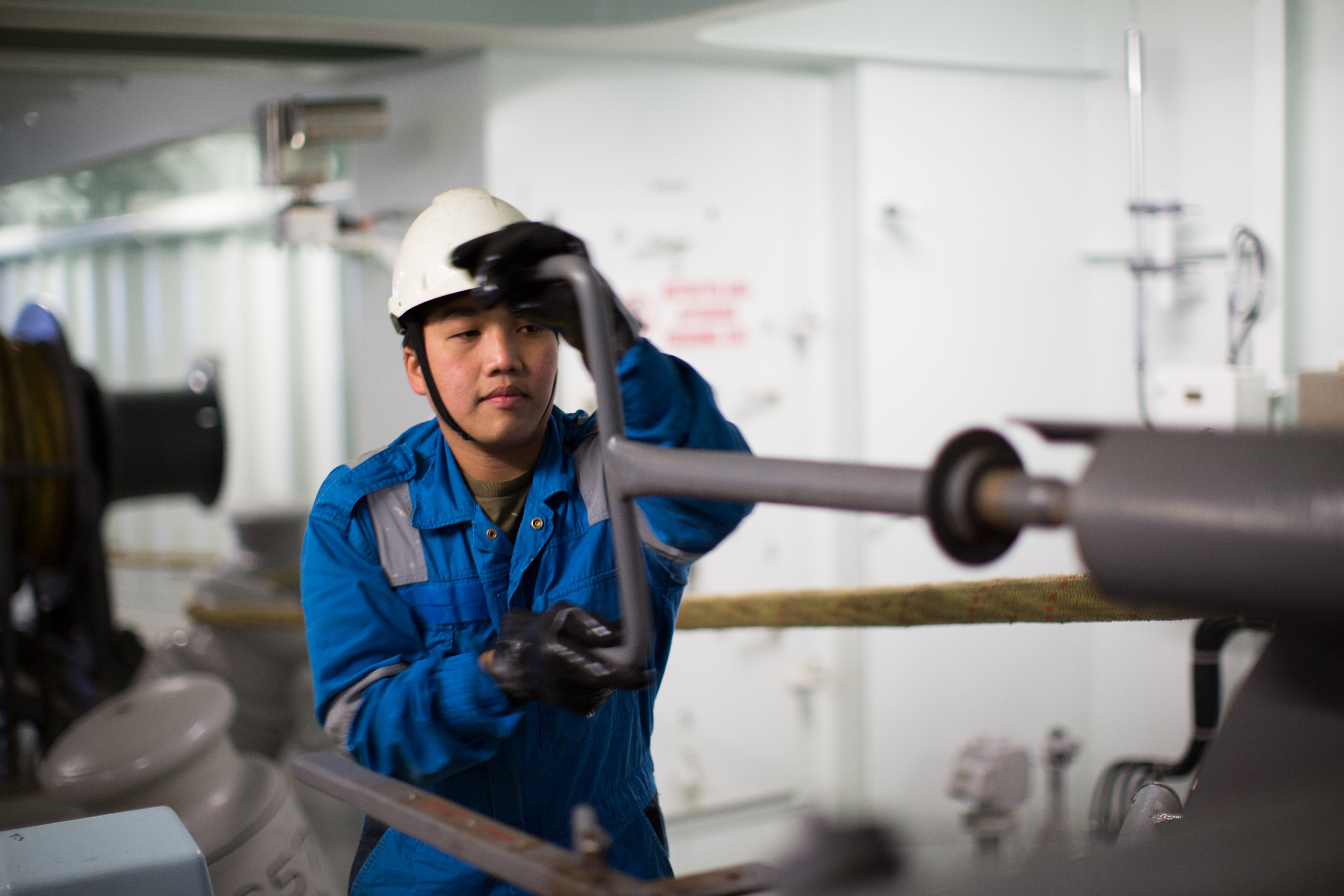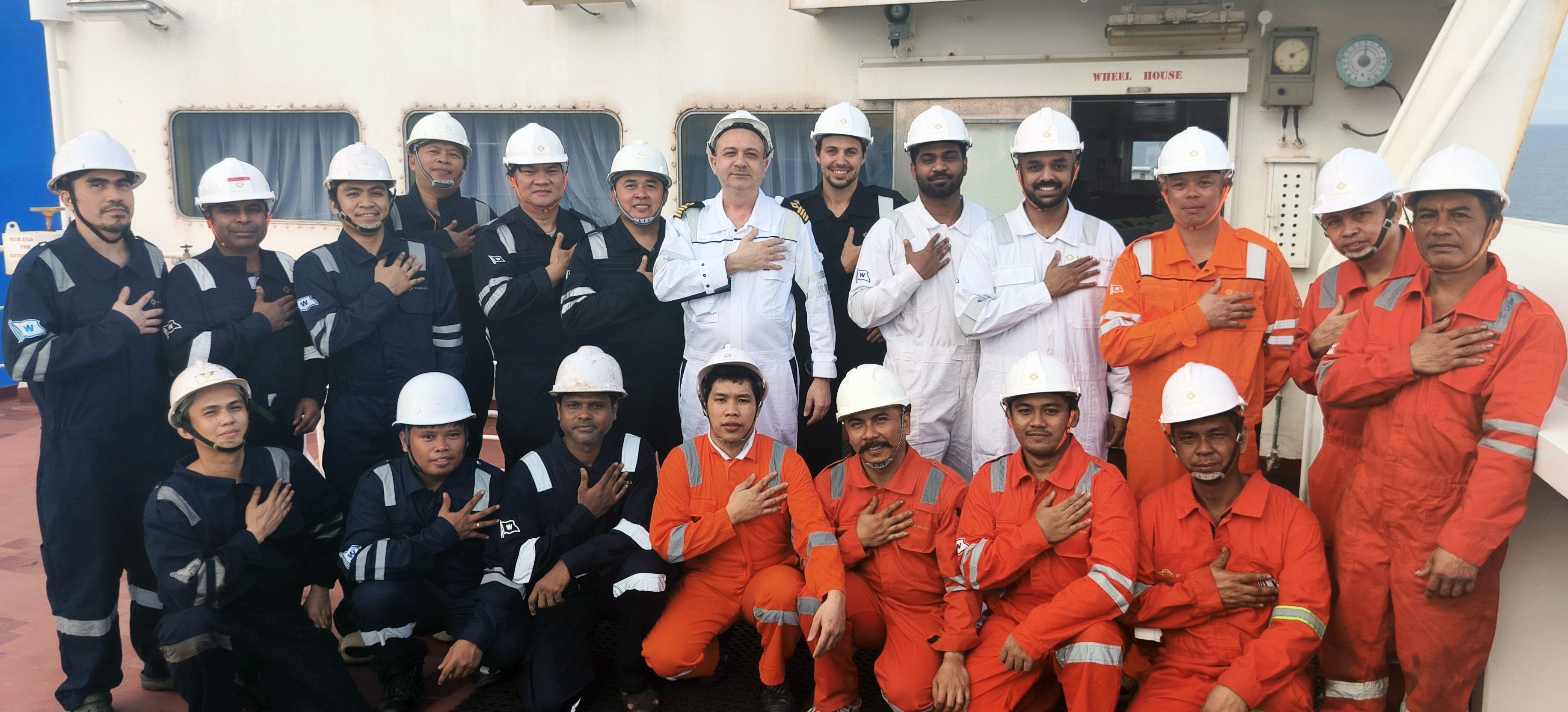Safety Starts With Me: And Sometimes, That Means Stopping Work
威尔森观察
|
Wilhelmsen Ship Management
In the maritime industry, safety is not simply a procedure—it’s a commitment that starts with each of us. From the bridge to the engine room, and from shore teams to seafarers, everyone has a shared responsibility in maintaining a safe working environment. But personal accountability doesn’t just mean following procedures. Sometimes, it means having the courage to stop work when something doesn’t feel right.
At Wilhelmsen Ship Management, we champion the belief that “Safety Starts With Me.” This simple yet powerful mindset reinforces that safety isn’t someone else’s job—it’s everyone’s. Whether it’s a routine inspection or a high-risk maintenance task, safety must come before speed, convenience, or pressure.
The Power of Stopping Work
Stopping work may feel like a bold move, especially when you’re in the middle of a task, under time constraints, or part of a senior-junior hierarchy. But it’s precisely in those moments that stopping work becomes most critical.
Stopping work is not a sign of hesitation—it’s a mark of professionalism.
If something seems unsafe, unclear, or concerning, stopping work gives the team the opportunity to:
- Maintain situation awareness
- Reassess the risks involved
- Clarify misunderstandings or missing information
- Involve the right experts for a second opinion
- Prevent a potential incident before it happens
Often, incidents happen not because people didn’t know the right thing to do—but because they were unsure, or afraid to speak up. Cultivating a culture where stopping work is supported and encouraged helps eliminate that fear and empowers individuals to act confidently in the interest of safety.
 Stopping work isn’t hesitation—it’s professionalism. In high-pressure moments, speaking up can make all the difference.
Stopping work isn’t hesitation—it’s professionalism. In high-pressure moments, speaking up can make all the difference.
A Culture of Support, Not Blame
Our “Just Culture" framework at Wilhelmsen Ship Management emphasizes learning, not punishment. We understand that humans are fallible. That’s why we prioritize creating an environment where concerns can be raised without fear, and stopping work is seen as a proactive safety measure—not a failure to perform.
We train our teams to recognize their right—and duty—to stop work. This is not just a procedural allowance. It is a deeply held belief that every individual has the authority to protect themselves, their colleagues, and the vessel by pressing pause.
Leadership in Action
Safety leaders aren’t just found in senior roles—they are found in those who lead by example. When someone stops work to raise concern, they set a standard. They show that safety truly comes first.
As leaders, supervisors, and peers, we must reinforce this behavior, recognize it, and respond supportively. One stop-work decision could save lives, equipment, and time in the long run.
 As leaders and peers, it’s our role to support and recognize stop-work actions—they can prevent harm and protect what matters most.
As leaders and peers, it’s our role to support and recognize stop-work actions—they can prevent harm and protect what matters most.
Final Thoughts: Speak Up, Step Up
Safety begins with each of us—and sometimes the strongest thing we can do is stop, assess, and speak up. If you’re unsure, if something looks unsafe, or if something just doesn’t feel right— Speak up
Silence is more dangerous than delay.
Let’s stand together in our shared commitment to safety, empowering one another to act with courage, integrity, and care.